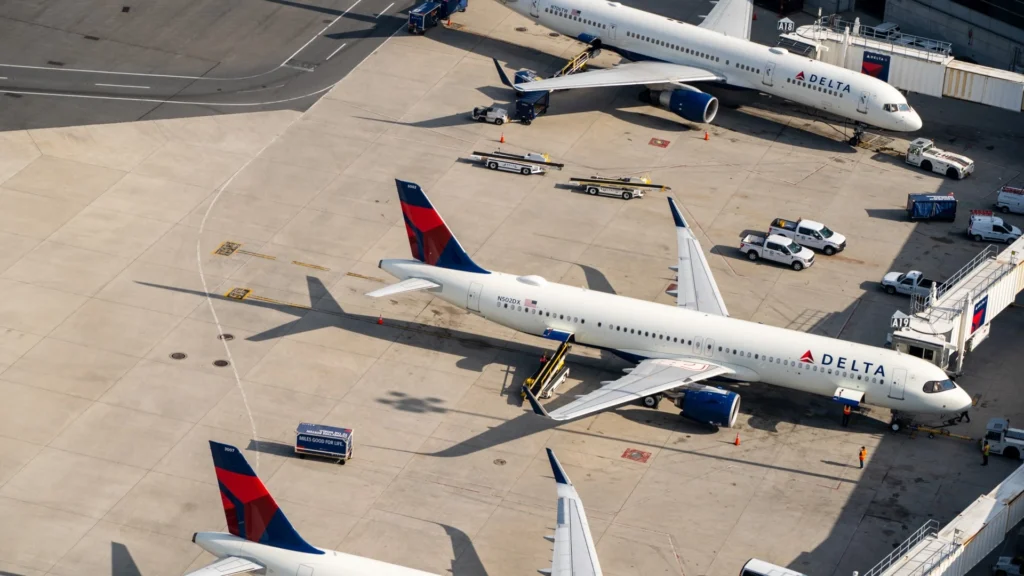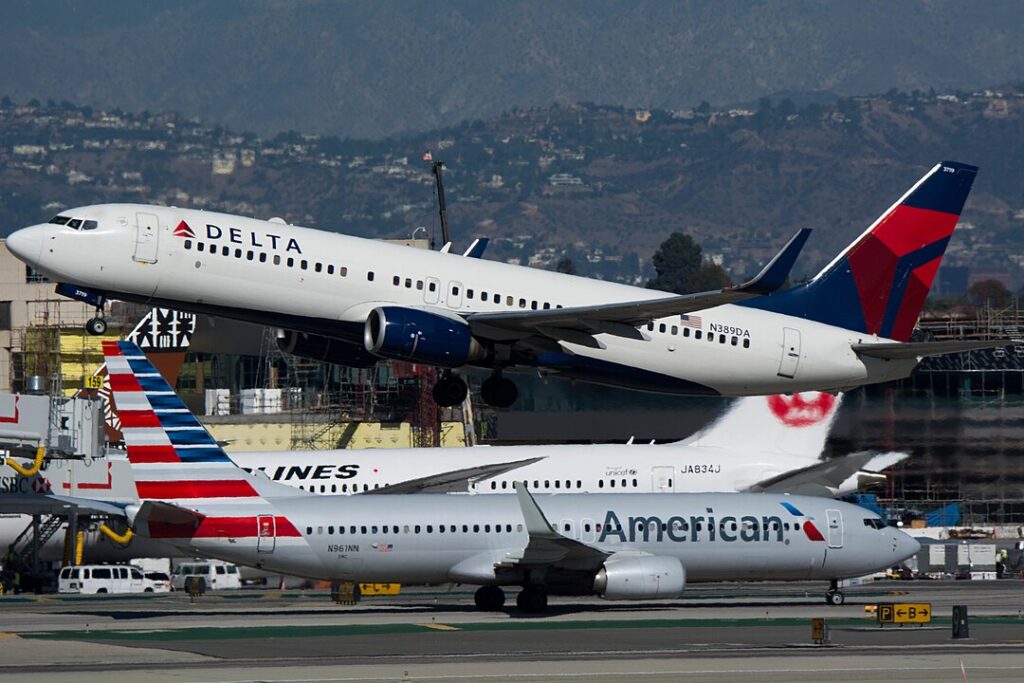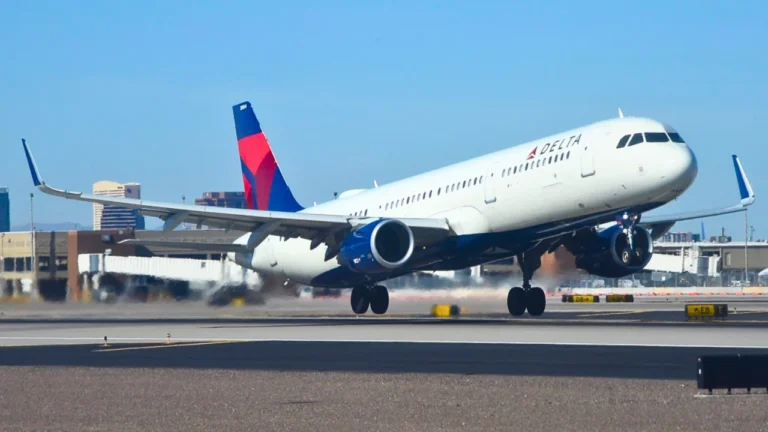AUSTIN- Atlanta-based carrier, Delta Air Lines (DL) is making network updates to its Austin (AUS) network including flight frequency changes, aircraft swaps, and some cuts.
Delta strengthens connectivity for Midland-Odessa and McAllen travelers through Austin, offering nearly 50 peak-day nonstop departures. The expanded network serves 15 domestic destinations, including Delta’s hub airports, Las Vegas (LAS), and Orlando (MCO), providing comprehensive coast-to-coast coverage.

Delta Austin Network Changes
Delta Air Lines announces strategic network adjustments at Austin-Bergstrom International Airport for the summer of 2025, reported Ishrion Aviation.
The airline introduces daily service to Jacksonville (JAX) using Embraer E175 aircraft while increasing Atlanta (ATL) frequency to ten daily flights.
The carrier upgrades its Seattle (SEA) route to the larger Airbus A220-300, replacing the current A220-100 aircraft. However, Delta discontinues its third daily frequency to Raleigh/Durham (RDU), adjusting capacity to match demand patterns.
International connections from Austin expand through Delta’s partnership network, featuring nonstop flights to Mexico City (MEX) and Amsterdam (AMS).
Austin-Bergstrom International Airport maintains its position as a significant regional hub, processing approximately 300 daily flights across all carriers.

American Falls, Delta Thrives
American Airlines (AA) terminates its focus city operations in Austin, Texas, following slower-than-anticipated market growth. The decision reflects changing economic conditions and strategic reassessment of the carrier’s network planning.
Austin’s economic landscape shows significant cooling, particularly in real estate values. The city experienced the steepest decline in home prices among major U.S. metropolitan areas between the summer of 2022 and 2023, with continued market softness persisting into 2024.
The air travel market in Austin presents mixed signals. British Airways (BA) demonstrates confidence by announcing double daily flights for summer 2025, while Virgin Atlantic (VS) ceases operations in the Texas capital. These contrasting decisions highlight the complex dynamics of Austin’s aviation market.
American Airlines’ strategic withdrawal stems from overestimating Austin’s growth trajectory and attempting to establish market dominance against competing carriers. The airline’s focus city model relied heavily on origin and destination traffic, lacking the connecting passenger flow that strengthens its Dallas-Fort Worth hub operations.
The geographic proximity to Dallas-Fort Worth International Airport (DFW) further complicated Austin’s viability as a focus city. The overlap in catchment areas limited Austin’s potential for developing unique market opportunities, ultimately contributing to American’s strategic retreat from expanded operations.
Stay tuned with us. Further, follow us on social media for the latest updates.
Join us on Telegram Group for the Latest Aviation Updates. Subsequently, follow us on Google News

